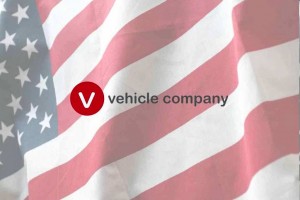V-Vehicle Company’s (V-VC) two loan applications for $321.1 million from the Advanced Technology Vehicle Manufacturing Loan Program (ATVMLP) from the Department of Energy were rejected last week, but that does not mean taxpayers are off the hook yet. (See A Closer Look at How DOE Spends Your Tax Dollars )
The fledgling venture capital startup, which plans to make four-passenger economy cars 40% cheaper than major automakers, was hoping that taxpayers would subsidize the gamble, and had been in discussion with DOE for about a year.
The first loan application was for $79.9 million to complete engineering integration with V-VC’s 30 U.S. suppliers. The second was for $241.2 million to re-equip and tool a former General Motors parts manufacturing facility as V-VC’s first regional assembly plant in Monroe, Louisiana. About 1.400 jobs would have been created if the company were successful.
The company raised $86.5 million in private capital, and another $87 million in state, local and federal grants had been promised if V-Vehicle obtained the loan.
Aides to U.S. Senator Mary Landrieu and Congressman Rodney Alexander, both of Louisiana, have met with federal Energy Department officials to see how startup automaker V-Vehicle can reapply for $321 million in federal loans, according to the Baton Rouge based NewsStar. The DOE says it can reapply if the company corrects unspecified concerns about its business plan. V-Vehicle officials confirm that sticking points include the firm’s lack of private capital and insolvency without the $320 million from taxpayers.
Critics of government spending to subsidize new or old auto companies say that the government lacks the expertise to make and oversee investment decisions.
“We were extremely surprised and disappointed by this decision,” said Frank Varasano, founder and chief executive officer of V-VC. “Our year-long discussions with the Department of Energy had left us confident and optimistic that the loan applications would be approved.”
In June 2009, the State of Louisiana announced a performance-based incentive package of over $133 million of infrastructure, tax credits, tax abatements and customized training as part of a Cooperative Endeavor Agreement (CEA) with VVC in which the company agreed to renovate and expand a former General Motors plant in Monroe.
That work began in July 2009 and was targeted for completion in the third quarter 2011. The first production prototype of the V Car is in testing and the projected national on-sale date was planned for the fourth quarter 2011.
“We still believe that VVC is the ideal applicant for the ATVMLP loans,” added Varasano.
Section 136 of the Energy Independence and Security Act of 2007, advanced by the Bush Administration, established an incentive program consisting of both grants and direct loans to support the development of advanced technology vehicles and associated components in the United States. The Department of Energy (DOE) is charged with administering the section 136 program, now known as the Advanced Technology Vehicles Manufacturing Loan Program (ATVM).
Under section 136, the ATVM provides loans to automobile and automobile part manufacturers for the cost of re-equipping, expanding, or establishing manufacturing facilities in the United States to produce “advanced technology vehicles” or qualified components, and for associated engineering integration costs.
First appropriated in the fall of 2008, the program will provide about $25 billion in loans to companies making cars and components in U.S. factories that increase fuel economy at least 25% above 2005 fuel economy levels. The technical and financial review process is focused not on choosing a single technology over others, but is aimed at promoting multiple approaches for achieving a fuel efficient economy, in other words – a scattershot approach that allows the doling out of tax dollars over multiple Congressional areas.
Applications for the loan program have included vehicles running on electricity, biofuels, and advanced combustion engines. They were submitted by both car and component makers, U.S. automakers, manufacturing subsidiaries or joint ventures of offshore-based companies, including the Chinese, auto parts suppliers, and startup businesses, some of which appear to be, surprise!, politically connected.

